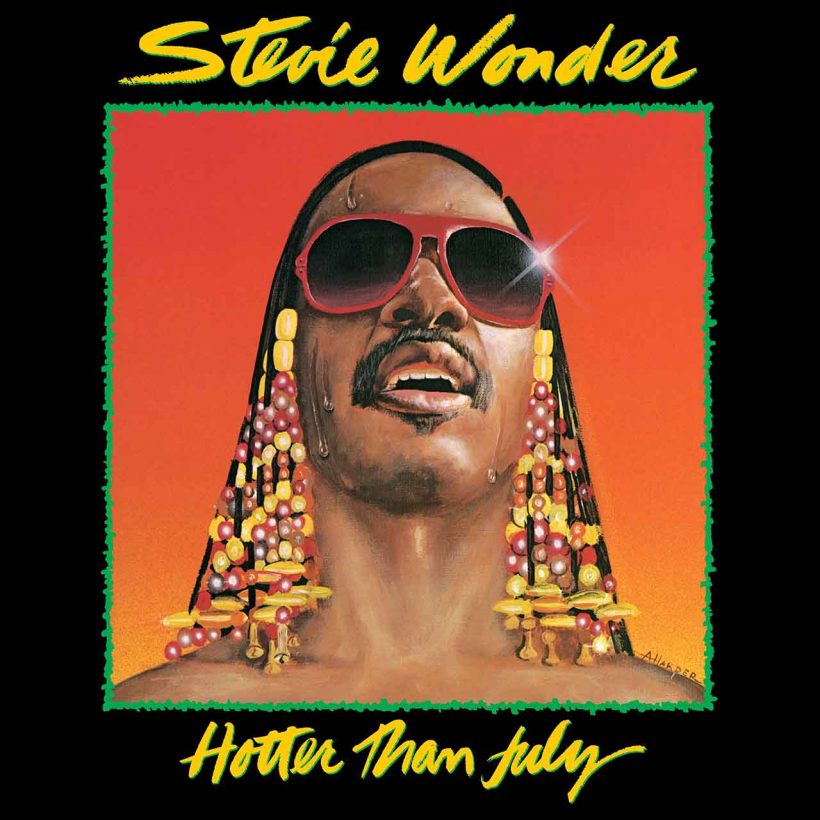‘Hotter Than July’: Stevie Wonder Enters A New Decade With A Classic
Released amid a musical landscape seismically fractured by disco and its aftermath, the album was yet another triumph for the Motown artist.

Stevie Wonder’s dominant 1970s creative run yielded some of the greatest music, popular or otherwise, of the 20th Century. It was transcendent not only for Wonder’s compositional prowess, but for his humanism, whether celebratory (“I Wish”; “Isn’t She Lovely”) or sobering (“Superstition”; “Living For the City”). By decade’s end, however, his artistry’s viability had curiously come into question. Arriving three years after his 1976 opus, Songs In the Key of Life, the expansive, largely instrumental documentary film soundtrack Journey Through the Secret Life of Plants was a commercial dud that left many fans perplexed. Amidst a musical landscape seismically fractured by disco and its reactionary aftermath, and quickly being redefined by younger voices both familiar (Michael Jackson) and radically new (Prince), one couldn’t help but wonder whether Stevie wasn’t lost within the introspection of his own genius?
Listen to Stevie Wonder’s Hotter Than July now.
His response, 1980’s Hotter Than July, quelled any doubts so resoundingly they seemed foolish in hindsight. That exultant shout that commences its opening track, “Did I Hear You Say You Love Me?” – a four-on-the-floor number that never abandons its soul on the dance floor – all but embodies this joyous return to form. After consecutive double LP big statements, Hotter Than July clocks in at a tight 10-songs with nary a wasted note. And though Stevie’s reduced the running time, his reach remains unbounded. “Master Blaster (Jammin’)” represents one exciting new foray: an explosive reggae-fied tribute to Bob Marley that finds him incorporating a wicked steppers beat into his already prodigious bag of tricks. “I Ain’t Gonna Stand For It” represents another: a breezy bit of country funk featuring a barely recognizable Stevie singing in an intermittent twang (with Gap Bandsmen Charlie and Ronnie Wilson on backup vocals) that could have slid comfortably onto that year’s C&W smash Urban Cowboy soundtrack.
“All I Do” is a study in both Stevie’s enduring songwriting abilities and knack for reinvention. Composed in 1966 during his early Motown tenure and recorded the same year by Tammi Terrell with a seductive lilt and longing, it’s rearranged and modernized here as an exuberant electric piano-fueled R&B masterpiece – with an all-star chorus of backing vocalists led by MJ, Betty Wright, and the O’Jays’ Eddie Levert and Walter Williams accentuating its fervor. Stevie enjoys additional invaluable personnel support elsewhere – veteran Motown arranger Paul Riser’s darting strings on a melodramatic “Rocket Love”; longtime collaborator (and ex-wife) Syreeta’s distinctively high, sweet vocals on the playful “As If You Read My Mind.” But ultimately it’s his purely solo material that makes the largest impact.
Accompanying himself on piano and synth bass, the heartbreaking “Lately” has him contemplating the telltale clues of an unfaithful partner in one of his finest ballad vocal readings. “Happy Birthday,” the album’s jubilant finale featuring Stevie on all instruments, channels his activism towards making Martin Luther King Jr.’s birthday a national holiday into some of the most moving lyrics of his career: “I just never understood / How a man who died for good / Could not have a day that would / Be set aside for his recognition.” Three years on and fifteen years after King’s assassination, that effort, catalyzed by Wonder, would finally be signed into law – the singular significance of which alone makes Hotter Than July an indispensable work.












